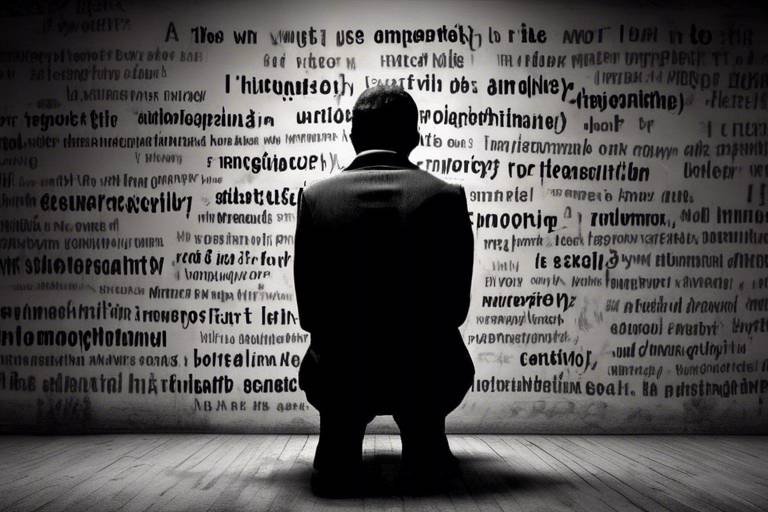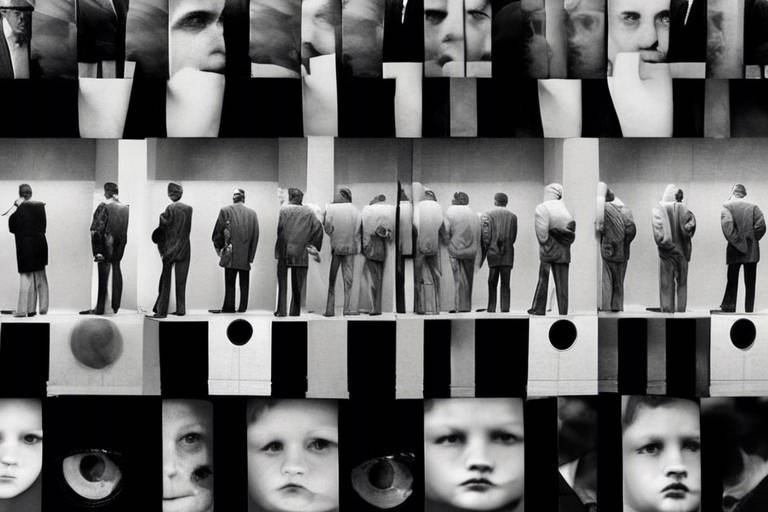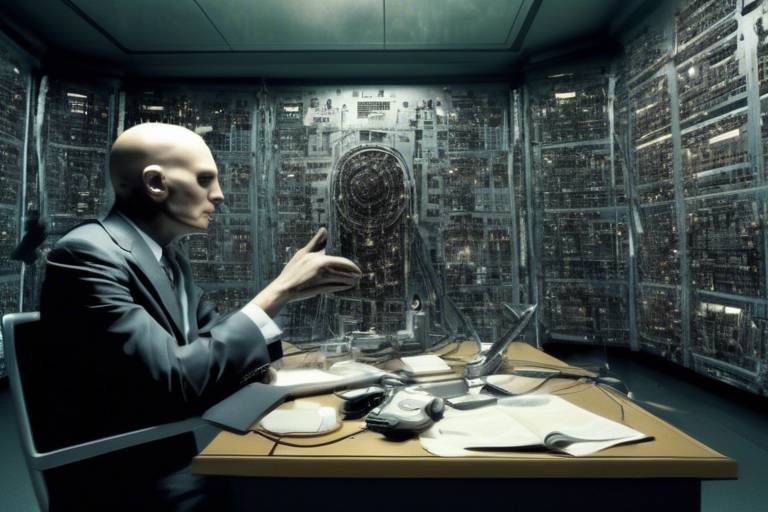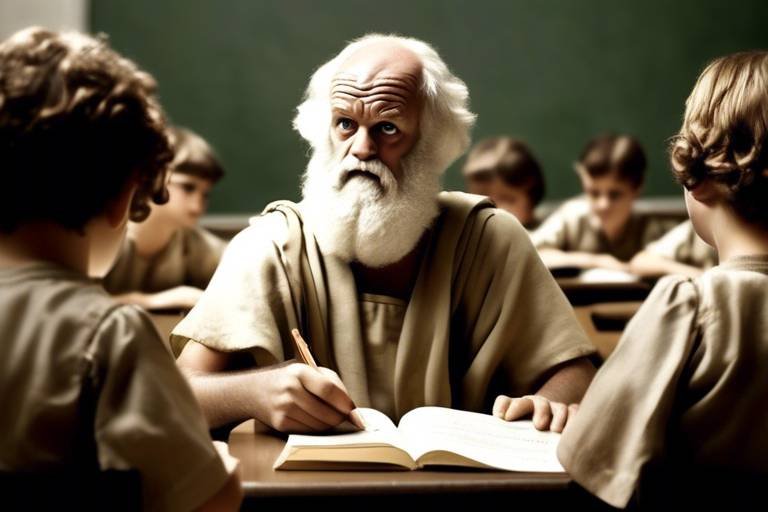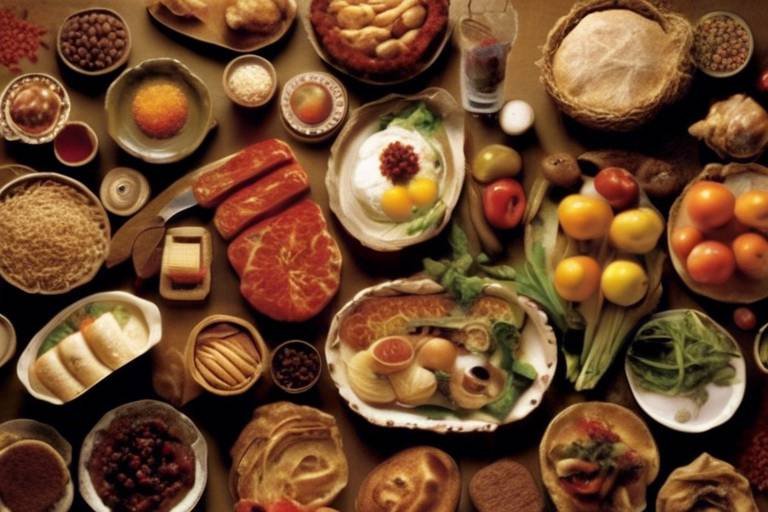Human Condition - A Philosophical Analysis
The concept of the human condition is a profound and intricate tapestry woven from the threads of existence, meaning, morality, identity, and the relationships we forge. It invites us to ponder the very essence of what it means to be human. Philosophers, writers, and thinkers throughout history have grappled with these themes, offering insights that resonate across generations. This article aims to explore these multifaceted aspects, shedding light on the existential dilemmas and ethical quandaries that define our lives.
At the heart of the human condition lies the question of existence itself. What does it truly mean to exist? Through the lenses of existentialism and phenomenology, we can begin to unravel this mystery. Existentialists like Jean-Paul Sartre argue that existence precedes essence, suggesting that we are not born with a predetermined purpose but rather create our own meaning through our choices. This perspective can feel both liberating and daunting, as it places the responsibility of defining our lives squarely on our shoulders. Meanwhile, phenomenology, championed by thinkers like Edmund Husserl, emphasizes the importance of consciousness and the lived experience. It urges us to consider how our perceptions shape our reality in a universe that often seems indifferent to our struggles.
The quest for meaning is a fundamental aspect of the human experience. In a world filled with chaos and uncertainty, how do we find purpose? Existentialists such as Viktor Frankl, who famously wrote "Man's Search for Meaning," assert that even in the direst circumstances, we can discover significance in our suffering and choices. On the other hand, absurdists like Albert Camus contend that life is inherently meaningless, and it is our responsibility to embrace this absurdity. This dichotomy raises a critical question: should we strive to create our own meaning, or accept the void and find joy in the journey itself?
As we navigate our lives, we encounter numerous ethical dilemmas that challenge our understanding of right and wrong. The frameworks of moral philosophy provide us with tools to navigate these complexities. From utilitarianism, which advocates for the greatest good for the greatest number, to deontological ethics, which emphasizes duty and rules, our moral compass is shaped by various influences. These ethical theories guide our decisions and interactions, reflecting the intricate web of the human condition where our actions have profound implications not just for ourselves, but for society as a whole.
Identity is another cornerstone of the human condition. Who are we, and how do we define ourselves? Our identities are shaped by a multitude of factors, including culture, society, and personal experiences. In an increasingly globalized world, the interplay between individual identity and collective identity becomes more pronounced. We often find ourselves at the intersection of various identities, navigating the complexities that arise from being part of multiple communities. This exploration of selfhood can lead to profound insights about our place in the world.
Suffering is an intrinsic part of the human experience, and its implications are vast. While it can be painful and isolating, suffering can also foster personal growth and deepen our capacity for empathy. Many philosophical traditions, including Buddhism, teach that suffering is a universal experience that can lead to enlightenment. By examining our pain and hardship, we may uncover valuable lessons about resilience and compassion, ultimately enriching our understanding of the human condition.
With freedom comes responsibility, a relationship that is central to our moral existence. The choices we make shape not only our lives but also the lives of those around us. This intersection of freedom and responsibility raises critical questions: Are we truly free if our choices are influenced by external factors? How do we reconcile our desire for autonomy with the ethical implications of our actions? Understanding this dynamic is essential for navigating the complexities of life in a free society.
Interpersonal relationships are fundamental to the human condition. They provide us with love, support, and a sense of belonging. The connections we forge with others profoundly impact our emotional well-being and shape our identities. In a world that often feels disconnected, nurturing these relationships becomes increasingly important. Whether through family bonds, friendships, or romantic partnerships, the significance of connection cannot be overstated. These relationships are the threads that weave our lives together, creating a rich tapestry of shared experiences.
Our awareness of mortality profoundly influences our behavior and beliefs. The inevitability of death prompts us to reflect on our lives, our choices, and the legacy we leave behind. Different cultures and philosophies offer varying perspectives on the afterlife, from reincarnation to eternal rest. This exploration of mortality raises important questions: How does our understanding of death shape our pursuit of meaning? What motivates us to seek immortality, whether through legacy or technological advancements? These inquiries reveal the intricate relationship between life, death, and our quest for significance.
In today's digital age, technology plays a pivotal role in shaping the human condition. While it offers unprecedented opportunities for connection and knowledge, it also presents challenges that can alienate us from our humanity. The balance between embracing technological advancements and maintaining our essential human qualities is a delicate one. As we navigate this landscape, we must critically examine how technology influences our relationships, our self-perception, and our understanding of what it means to be human.
- What is the human condition? The human condition refers to the various experiences, emotions, and challenges that define human existence, including themes of existence, meaning, identity, and relationships.
- Why is understanding the human condition important? Understanding the human condition helps us navigate life's complexities, fosters empathy, and encourages personal growth.
- How do different philosophies approach the human condition? Various philosophical traditions, including existentialism, absurdism, and moral philosophy, offer unique insights into the nature of existence, meaning, and ethics.
- Can suffering lead to personal growth? Yes, many philosophical and spiritual traditions suggest that suffering can foster resilience, empathy, and deeper understanding of oneself and others.

The Nature of Existence
The question of what it means to exist is as profound as it is perplexing. When we pause to ponder our existence, we find ourselves navigating through a labyrinth of thoughts and emotions. What does it truly mean to "be"? This inquiry has been at the heart of philosophical discourse for centuries, especially within the realms of existentialism and phenomenology. These schools of thought compel us to examine our consciousness and the rich tapestry of human experience against the backdrop of an indifferent universe.
Existentialists like Jean-Paul Sartre and Albert Camus argue that existence precedes essence, suggesting that we are not born with a predetermined purpose. Instead, we are thrust into the world, and it is our responsibility to create meaning for ourselves. This idea can be quite liberating yet daunting. Imagine being handed a blank canvas without any instructions on how to paint a masterpiece; the freedom to create is exhilarating, but the fear of a blank slate can be paralyzing.
On the other hand, phenomenology, championed by thinkers such as Edmund Husserl and Martin Heidegger, focuses on the structures of experience and consciousness. It invites us to immerse ourselves in the moment, to truly feel and perceive our surroundings. By doing so, we can grasp the essence of our existence through direct experience rather than abstract reasoning. This perspective encourages us to engage with the world around us—every sound, every sight, every sensation—as if they are intricate threads woven into the fabric of our being.
To illustrate this further, consider the following table that contrasts existentialism and phenomenology:
| Aspect | Existentialism | Phenomenology |
|---|---|---|
| Focus | Individual freedom and choice | Experience and perception |
| Key Thinkers | Sartre, Camus | Husserl, Heidegger |
| Ultimate Goal | Create personal meaning | Understand the essence of experience |
In this seemingly indifferent universe, we often grapple with feelings of isolation and insignificance. Yet, it is within this very struggle that we find the essence of our humanity. The act of questioning our existence can itself be a form of connection—both with ourselves and with others who share in this existential inquiry. We are not solitary beings; rather, we are part of a collective human experience that binds us together through shared struggles and triumphs.
Ultimately, the nature of existence is not merely a philosophical debate but a deeply personal journey. Each of us must grapple with our own understanding of what it means to exist, to feel, and to connect. As we explore these existential themes, we can find comfort in the knowledge that we are not alone in our quest for meaning. The journey itself, with all its twists and turns, is what enriches our lives and shapes our identities.
- What is the main focus of existentialism? Existentialism primarily focuses on individual freedom, choice, and the creation of personal meaning in an indifferent universe.
- How does phenomenology differ from existentialism? While existentialism emphasizes individual freedom, phenomenology focuses on understanding the structures of experience and consciousness.
- Why is the question of existence important? Questioning our existence helps us explore our identity, purpose, and connection to others, ultimately enriching our lives.

The Search for Meaning
The quest for meaning is perhaps one of the most profound journeys we embark on as humans. It’s like wandering through a dense forest, where every tree represents a different philosophy, and every path leads to a unique perspective on life. From the ancient philosophers to modern thinkers, the question of “What is the purpose of life?” has echoed through the ages, challenging us to reflect on our existence and the choices we make. This exploration is not merely academic; it is deeply personal and often fraught with existential angst. We find ourselves asking, “Is there a greater purpose to our struggles and joys?”
Existentialists, such as Jean-Paul Sartre and Viktor Frankl, have provided compelling insights into this search. Sartre famously declared that “existence precedes essence,” suggesting that we are born without inherent purpose and must create our own meaning through our actions and choices. This idea can be liberating yet daunting. It places the onus on us to navigate our lives and determine what truly matters. On the other hand, Frankl, a Holocaust survivor, emphasized that even in the direst circumstances, we can find meaning through love, suffering, and the pursuit of goals. His perspective reminds us that meaning is not always found in grand achievements but often in the small, everyday moments that resonate with our values and beliefs.
Moreover, the absurdists, like Albert Camus, take a different approach. They argue that life is inherently meaningless, and it’s our responsibility to confront this absurdity head-on. Camus famously illustrated this through the myth of Sisyphus, who was condemned to roll a boulder up a hill only to watch it roll back down for eternity. In this narrative, Camus suggests that we must imagine Sisyphus happy, embracing the struggle itself as a source of personal meaning. This perspective encourages us to find joy in the journey rather than fixating solely on the destination.
As we delve deeper into the search for meaning, we encounter various frameworks that help us make sense of our experiences:
- Religious Perspectives: Many people turn to religion for answers, believing that a divine plan gives life its significance. Faith can provide comfort and a sense of belonging, guiding individuals through life's uncertainties.
- Humanistic Approaches: This perspective emphasizes human potential and the importance of personal growth. It advocates that meaning can be derived from self-actualization and contributing to the greater good.
- Philosophical Skepticism: Some argue that the search for meaning is inherently flawed, suggesting that we should focus instead on experiencing life as it is, without the pressure of finding a definitive purpose.
Ultimately, the search for meaning is a journey unique to each individual. It’s a tapestry woven from our experiences, beliefs, relationships, and aspirations. We may find ourselves revisiting this question at different stages of our lives, adapting our understanding as we grow. The beauty of this quest lies in its complexity and the personal revelations it can bring. Just as a river carves its path through the landscape, allowing the flow of water to shape the earth, our search for meaning shapes our identity and influences how we perceive the world around us.
In this light, it’s essential to recognize that the pursuit of meaning is not a destination but a continuous process. The questions we ask and the reflections we engage in can lead to profound insights and a deeper connection to ourselves and others. So, the next time you find yourself pondering the meaning of life, remember that it’s not about finding a definitive answer; it’s about embracing the journey and discovering what resonates with your soul.
Q: What is the meaning of life according to existentialism?
A: Existentialism posits that life has no inherent meaning; instead, individuals must create their own purpose through choices and actions.
Q: How can suffering contribute to finding meaning?
A: Suffering can lead to personal growth and a deeper understanding of oneself, allowing individuals to appreciate joy and connection more profoundly.
Q: Are there universal meanings that apply to everyone?
A: While some themes, such as love and connection, resonate universally, the search for meaning is ultimately personal and varies from person to person.
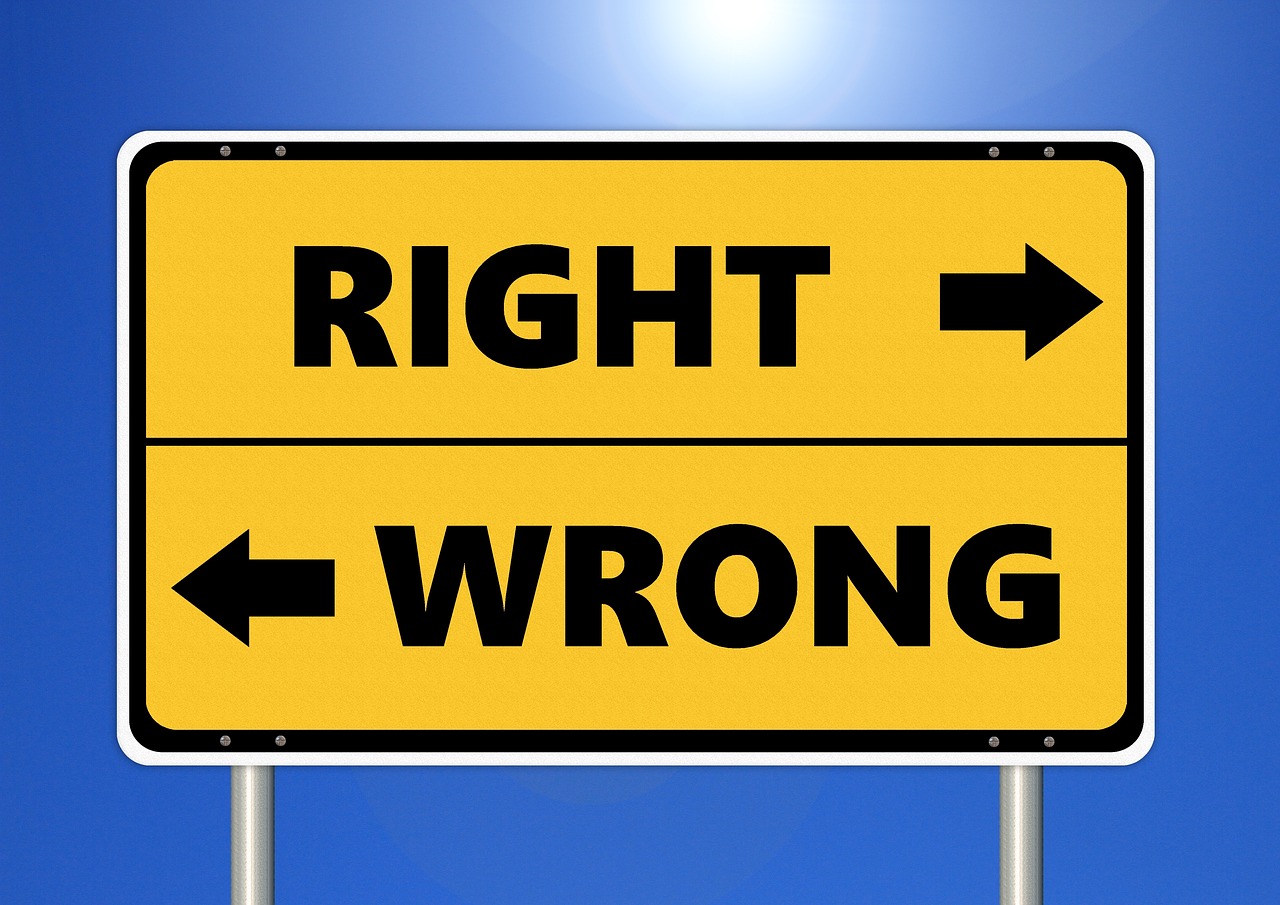
Ethics and Morality
When we dive into the murky waters of ethics and morality, we are essentially trying to navigate the complex map of human behavior. What makes something right or wrong? This question has puzzled philosophers for centuries, and it’s a topic that resonates deeply within the human condition. At its core, ethics is about the principles that govern our actions, while morality is the code we live by, often shaped by cultural, societal, and personal influences. Think of ethics as the compass guiding us through the stormy seas of life, helping us make decisions that align with our values and beliefs.
Many philosophical frameworks attempt to define what constitutes ethical behavior. For instance, utilitarianism suggests that the best action is the one that maximizes overall happiness. In contrast, deontological ethics, famously championed by Immanuel Kant, argues that actions must adhere to a set of rules or duties, regardless of the consequences. This raises an intriguing question: can we always predict the outcomes of our actions? And if we can’t, how do we determine what is right or wrong?
Furthermore, the concept of morality is often intertwined with cultural narratives. Different societies have varying beliefs about what is considered ethical. For example, in some cultures, individualism is celebrated, while in others, collectivism takes precedence. This discrepancy can lead to ethical dilemmas, where individuals find themselves at odds with societal norms. Imagine a tightrope walker balancing between their personal beliefs and the expectations of their community. It’s a precarious position, and it highlights the intricate dance between personal morality and societal ethics.
To further illustrate the relationship between ethics and morality, let’s examine a few key ethical theories:
| Ethical Theory | Description |
|---|---|
| Utilitarianism | Focuses on the outcome of actions, aiming to maximize happiness for the greatest number. |
| Deontological Ethics | Emphasizes duties and rules, asserting that some actions are inherently right or wrong. |
| Virtue Ethics | Centers on the character of the moral agent, promoting virtues as the basis for ethical behavior. |
| Social Contract Theory | Suggests that moral and political obligations arise from an implicit agreement among individuals. |
As we explore these theories, it becomes evident that ethics and morality are not static; they evolve over time and are influenced by various factors, including religion, philosophy, and personal experiences. This fluidity can lead to conflicts, especially when individuals encounter situations that challenge their moral compass. For instance, consider the ethical dilemmas faced by healthcare professionals who must make tough decisions about patient care. Their choices often reflect a balance between ethical principles and the realities of human suffering.
Moreover, the rise of technology has introduced new ethical challenges. With advancements in artificial intelligence and biotechnology, we are forced to confront questions about the implications of our innovations. Should we prioritize progress over ethical considerations? This dilemma is akin to opening Pandora’s box; once we unleash these technologies, can we control their consequences? The intersection of technology, ethics, and morality is a fertile ground for discussion, prompting us to rethink our values in a rapidly changing world.
Ultimately, the exploration of ethics and morality is a journey through the human experience. It invites us to reflect on our values, question our beliefs, and engage in meaningful conversations with others. As we grapple with the complexities of right and wrong, we become more aware of our interconnectedness and the impact of our choices on the world around us. So, what do you think? Are we the architects of our moral universe, or are we merely following a script written by society?
- What is the difference between ethics and morality? Ethics refers to the principles that govern behavior, while morality is the personal code of conduct shaped by culture and society.
- Why are ethical theories important? Ethical theories provide frameworks for understanding complex moral dilemmas and guide individuals in making informed decisions.
- How does culture influence morality? Cultural narratives shape our understanding of right and wrong, leading to diverse moral perspectives across different societies.
- What role does technology play in ethical dilemmas? Technology introduces new challenges and questions about the implications of our innovations, prompting us to rethink our ethical frameworks.
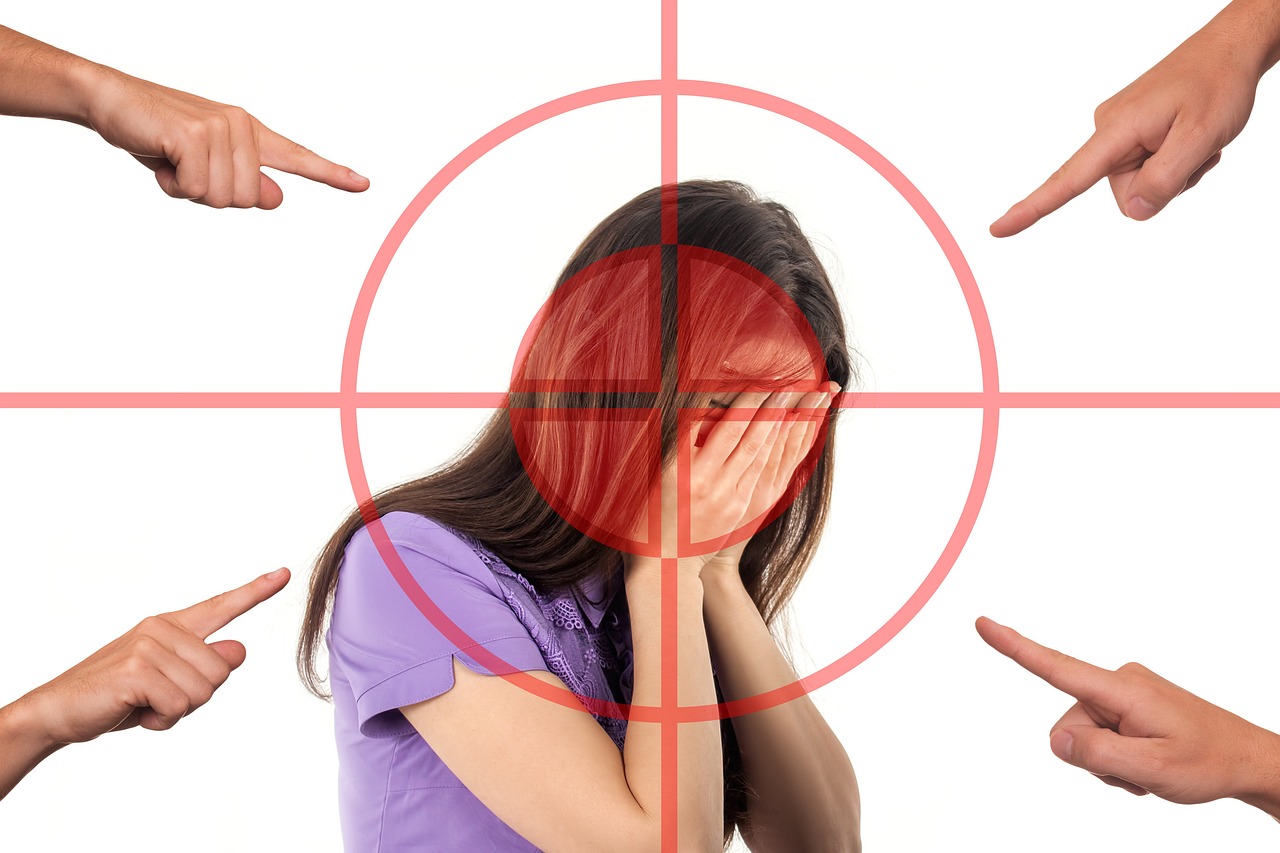
Identity and Selfhood
When we think about identity, it often feels like trying to catch smoke with our bare hands. It's elusive, multifaceted, and constantly shifting. Our identity is not just about who we are in isolation; it’s deeply intertwined with the social fabric around us. From the moment we are born, we are shaped by a myriad of factors—our family, culture, society, and personal experiences. Each of these elements contributes to the complex tapestry of our selfhood, creating a unique pattern that defines us.
Consider the concept of personal identity. It involves our self-concept, which includes our beliefs, values, and personality traits. But wait, there’s more! It also encompasses how we perceive ourselves in relation to others. Are we the same person at home as we are at work? Do we wear different masks depending on who we’re with? This duality can lead to an identity crisis, where one might question, “Who am I really?”
Moreover, our identities are not static; they evolve over time. As we navigate through life, we encounter experiences that challenge our beliefs and force us to reevaluate who we are. For instance, a significant life event—like moving to a new city or experiencing a loss—can dramatically shift our perspective and, consequently, our identity. This evolution can be both exhilarating and frightening, as it leads us to confront the question: Are we merely products of our circumstances, or do we have the power to shape our own identities?
In addition to personal identity, we must consider collective identity. This refers to the groups we belong to—be it our nationality, ethnicity, religion, or any other social grouping. These collective identities provide a sense of belonging and community but can also lead to conflict when different groups clash. Imagine a world where these identities are celebrated rather than contested; it could pave the way for greater understanding and acceptance. However, the challenge lies in balancing our individual identities with our collective ones.
To illustrate the interplay between individual and collective identity, let’s look at the following table:
| Aspect | Individual Identity | Collective Identity |
|---|---|---|
| Definition | How we see ourselves personally | How we identify with groups |
| Influences | Personal experiences, values, beliefs | Cultural, social, and historical contexts |
| Flexibility | Can change based on experiences | Can shift with societal changes |
In our quest for selfhood, we often grapple with the tension between authenticity and social expectations. Are we being true to ourselves, or are we merely conforming to societal norms? This dichotomy can lead to feelings of alienation, especially in a world that often prioritizes conformity over individuality. Yet, embracing our true selves can be liberating. It allows us to connect more deeply with others and fosters genuine relationships based on acceptance and understanding.
As we delve deeper into the nature of identity and selfhood, it becomes apparent that our journey is not just about discovering who we are, but also about understanding our place in the world. This exploration can be daunting, yet it is essential for personal growth. So, the next time you find yourself pondering your identity, remember that it’s a journey—one filled with questions, challenges, and moments of profound insight.
- What factors influence our identity? Our identity is shaped by personal experiences, cultural background, social interactions, and even historical context.
- Can our identity change over time? Yes, our identity can evolve due to new experiences, relationships, and insights we gain throughout life.
- How do collective identities affect individual identity? Collective identities can provide a sense of belonging but may also create conflict when individual beliefs differ from group norms.
- What is the importance of understanding one's identity? Understanding our identity helps us navigate our relationships, make informed choices, and foster personal growth.

The Role of Suffering
Suffering is often seen as an unwelcome guest in the grand tapestry of human existence. Yet, if we take a moment to pause and reflect, we might find that it plays a crucial role in shaping who we are. Just like a sculptor chisels away at a block of marble to reveal a masterpiece, suffering can carve out resilience, empathy, and depth within us. But why do we suffer? Is it merely a byproduct of life, or does it serve a more profound purpose?
From a philosophical standpoint, suffering is intrinsically linked to the human condition. Think about it: every story worth telling has its share of conflict and hardship. Whether it’s the tragic hero in a Shakespearean play or the struggles of everyday people, suffering often acts as a catalyst for growth and transformation. It forces us to confront our limitations and, in doing so, reveals our true strengths. For instance, many existentialists argue that through suffering, we can find authenticity and a clearer understanding of our existence. They propose that it’s in our darkest moments that we often discover what truly matters to us.
Moreover, suffering fosters empathy. When we experience pain, it opens our hearts to the suffering of others. We become more compassionate, more understanding. This shared experience of hardship can create bonds that transcend superficial differences, reminding us that we are all part of the same human family. As the saying goes, “No one knows what another person is going through.” It’s this awareness that can lead to profound connections between individuals, communities, and cultures.
However, it’s essential to recognize that not all suffering is created equal. There’s a distinction between constructive suffering, which can lead to personal growth, and destructive suffering, which can lead to despair. This brings us to the philosophical interpretations of suffering. Think about the Buddhist perspective, which teaches that suffering is an inherent part of life, but it’s our attachment to desires that exacerbates it. By letting go, we can find peace amidst chaos. On the other hand, Nietzsche famously stated that “what does not kill me makes me stronger,” suggesting that suffering, when faced head-on, can be a powerful teacher.
In a more practical sense, suffering can also motivate societal change. Throughout history, movements for justice and equality have often been born from the collective suffering of individuals. The civil rights movement, for example, was fueled by the deep pain of oppression, yet it led to significant societal transformation. This illustrates that while suffering is undoubtedly challenging, it can also ignite a passion for change, pushing individuals and communities to strive for a better future.
In conclusion, suffering is not merely an obstacle to be avoided; it is a profound aspect of the human experience that can lead to growth, empathy, and change. Embracing suffering, rather than shying away from it, may just be the key to unlocking a deeper understanding of ourselves and our place in the world. So, the next time you find yourself grappling with pain, consider it an opportunity for reflection and transformation. After all, as the poet Rainer Maria Rilke once said, “The only journey is the one within.”
- What is the purpose of suffering in life?
Suffering can lead to personal growth, empathy, and societal change, revealing our strengths and connecting us with others. - How can suffering foster empathy?
Experiencing pain ourselves allows us to understand and relate to the struggles of others, creating deeper connections. - Is all suffering beneficial?
No, there is a distinction between constructive suffering, which can lead to growth, and destructive suffering, which can lead to despair. - Can suffering motivate societal change?
Yes, collective suffering has historically spurred movements for justice and equality, pushing for significant societal transformation.

Freedom and Responsibility
When we think about freedom, it often conjures images of limitless possibilities, where we can make choices unbound by external constraints. But, let’s pause for a moment and ask ourselves: what does it really mean to be free? In philosophical terms, freedom isn't just about having options; it’s also about the weight of the choices we make. With every decision comes a ripple effect, impacting not only our lives but also the lives of others around us. This is where the concept of responsibility steps in, intertwining with freedom to create a complex dance that defines the human experience.
Imagine standing at a crossroads, each path representing a different choice. The freedom to choose is exhilarating, but it also carries with it the burden of responsibility. In this context, freedom becomes a double-edged sword. On one hand, it empowers us to shape our destinies, but on the other, it requires us to face the consequences of our actions. This relationship between freedom and responsibility has been a central theme in philosophical discussions, particularly in the works of existentialists like Jean-Paul Sartre, who famously stated, "Man is condemned to be free." What he meant is that with our freedom comes an inherent responsibility to make choices that are not only beneficial to ourselves but also to society as a whole.
To further illustrate this point, let’s consider a few key aspects of how freedom and responsibility interact:
- Choice and Consequence: Every choice we make has consequences, some immediate and others that unfold over time. Understanding this connection is crucial for navigating our freedom responsibly.
- Social Responsibility: Our freedoms do not exist in a vacuum. They are part of a larger social fabric where our actions can affect others. This necessitates a sense of duty towards the community.
- Personal Growth: Embracing responsibility can lead to personal development. When we hold ourselves accountable for our actions, we learn, adapt, and evolve.
Moreover, the concept of moral responsibility plays a significant role in this discussion. It raises questions about the ethical implications of our choices. Are we truly free if our decisions are influenced by societal norms or expectations? Or does true freedom lie in the ability to act against these norms when necessary? This dilemma is at the heart of many ethical theories, including utilitarianism and deontology, which offer different perspectives on what it means to act responsibly.
Another fascinating aspect of this relationship is the way it manifests in our daily lives. Consider the simple act of driving a car. While we have the freedom to drive wherever we want, we also bear the responsibility to follow traffic laws, ensuring not just our safety but the safety of others on the road. This example illustrates how freedom requires a framework of responsibility to function effectively within society.
Ultimately, the interplay between freedom and responsibility is a reflection of the broader human condition. It challenges us to think critically about our choices and their impact on the world. As we navigate through life, it is essential to recognize that our freedom is a privilege that comes with the duty to act with integrity and awareness. In doing so, we contribute to a more harmonious existence where freedom and responsibility coexist, allowing for a richer, more meaningful life experience.
- What is the relationship between freedom and responsibility?
Freedom allows individuals to make choices, while responsibility ensures that they consider the consequences of those choices on themselves and others. - Can one exist without the other?
In a practical sense, freedom and responsibility are intertwined. True freedom often requires a sense of responsibility to ensure that one's actions do not harm others. - How can we cultivate a sense of responsibility in a free society?
Education, community engagement, and open dialogue about the consequences of actions can help foster a culture of responsibility.
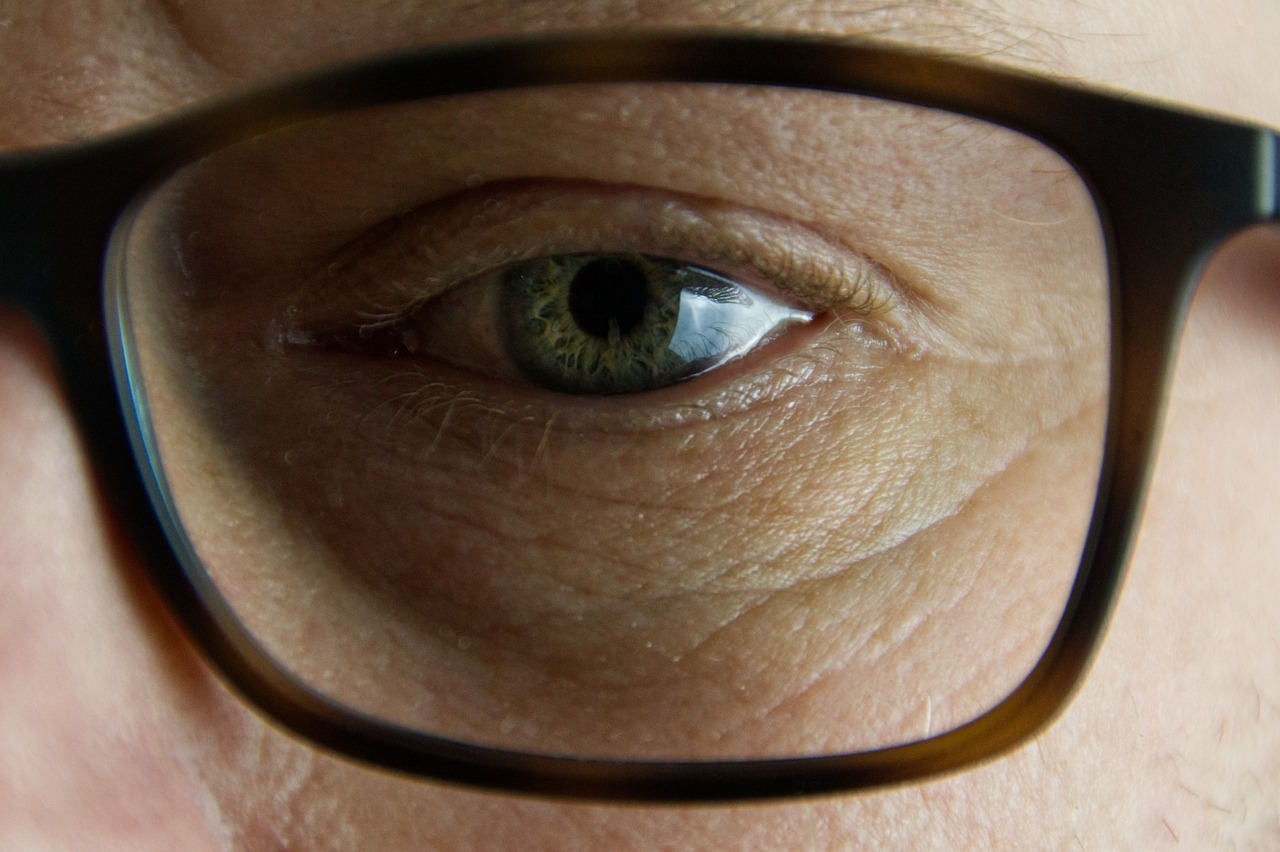
Human Relationships
When we talk about the human condition, we can't overlook the profound impact of relationships in shaping our experiences and identities. Think about it: from the moment we are born, we are thrust into a web of connections. These connections—whether with family, friends, or even strangers—play a pivotal role in our emotional and psychological development. They are the threads that weave the fabric of our lives, often defining our joys, sorrows, and everything in between.
At the core of human relationships lies the essential need for connection. Have you ever felt the warmth of a friend's embrace or the comfort of a loved one's voice? Those moments remind us that we are not alone in this vast universe. The philosopher Martin Buber famously articulated this in his concept of I-Thou relationships, emphasizing that genuine connections are formed when we see others as whole beings rather than mere objects. This perspective invites us to engage deeply with those around us, fostering empathy and understanding.
However, relationships are not always smooth sailing. They can be fraught with challenges, misunderstandings, and conflicts. Just like a stormy sea, navigating the waters of human interaction requires skill and patience. In this context, effective communication becomes crucial. It's the lifeline that keeps our relationships afloat. Miscommunication can lead to a breakdown in trust, while open and honest dialogue can strengthen bonds. So, how do we cultivate this vital skill? Here are some key elements:
- Active Listening: Truly hearing what the other person is saying can transform a conversation.
- Empathy: Putting ourselves in someone else's shoes fosters deeper connections.
- Honesty: Sharing our thoughts and feelings openly builds trust.
Moreover, relationships are not just about the good times; they also encompass moments of suffering and challenge. It is through these trials that we often find the deepest connections. When we support one another through difficult times, we forge bonds that can withstand the test of time. This is beautifully illustrated in Viktor Frankl's assertion that suffering can lead to a greater sense of purpose and connection with others.
In today’s digital age, the landscape of human relationships has evolved dramatically. Social media platforms allow us to connect with people across the globe, but they can also create a sense of isolation. The paradox of technology is that while it offers numerous ways to communicate, it can sometimes hinder genuine connection. The key is to balance online interactions with face-to-face encounters, ensuring that our relationships remain meaningful and fulfilling.
In examining the significance of human relationships, we must also acknowledge the role of cultural influences. Different cultures have varying norms regarding relationships, whether it’s the emphasis on collectivism in some societies or the focus on individuality in others. Understanding these differences can enhance our interactions and broaden our perspectives, allowing us to appreciate the rich tapestry of human connection.
Ultimately, the quality of our relationships profoundly affects our overall well-being. Studies have shown that strong social connections can lead to better physical health, increased happiness, and even a longer life. So, as we navigate the complexities of our existence, let’s remember to invest in our relationships. After all, they are not just a part of our lives; they are the essence of what it means to be human.
1. Why are human relationships important?
Human relationships are essential for emotional support, personal growth, and overall well-being. They provide a sense of belonging and can significantly influence our happiness.
2. How do I improve my relationships?
Improving relationships often involves enhancing communication skills, practicing empathy, and dedicating time to nurture connections. Open and honest dialogue is key.
3. What role does technology play in human relationships?
Technology can facilitate connections but may also create barriers to genuine interaction. Striking a balance between online and offline relationships is crucial for maintaining meaningful connections.
4. Can suffering strengthen relationships?
Yes, shared experiences of suffering can deepen bonds between individuals, fostering empathy and understanding as they support each other through challenges.

Mortality and the Afterlife
When we talk about mortality, we're diving into one of the most profound aspects of the human experience. It's that nagging thought that lingers in the back of our minds, isn't it? The idea that one day, our time will run out. This awareness shapes not only our individual lives but also our cultures, beliefs, and interactions with one another. Different cultures and philosophies have tried to tackle the concept of death and what might lie beyond it, leading to a rich tapestry of ideas and beliefs that reflect our deepest fears and hopes.
For many, the thought of an afterlife provides comfort. It suggests that death isn’t just an end, but rather a transition to another state of being. Various religious traditions offer their own interpretations of what this afterlife might look like. For instance:
- Christianity: Many Christians believe in heaven and hell, where one's actions during life determine their eternal fate.
- Buddhism: The concept of reincarnation suggests that the soul is reborn into a new life, influenced by karma from previous lives.
- Hinduism: Similar to Buddhism, Hinduism also embraces reincarnation and the cycle of samsara, where the soul evolves through various lifetimes.
- Agnosticism: Some agnostics maintain that the existence of an afterlife is unknown and possibly unknowable, leaving the question open for personal interpretation.
These varied beliefs highlight a fundamental truth about the human condition: we seek answers to questions that may never be fully resolved. This quest for understanding often leads to philosophical inquiry about the nature of existence itself. Think about it—how many times have you pondered the meaning of life while staring up at the stars? The vastness of the universe can make our individual lives seem so small, yet it also invites us to explore our significance within it.
Moreover, the awareness of our mortality can profoundly influence our behavior and relationships. It can drive us to live fully, to appreciate every moment, and to forge deeper connections with those around us. The saying, "You only live once," resonates with many as a call to action, urging us to seize opportunities and embrace life’s fleeting nature. However, this can also lead to a sense of urgency and anxiety, as we grapple with the reality that our time is limited.
In addition, contemplating mortality often leads people to engage in discussions about legacy. What will we leave behind? How will we be remembered? These questions can motivate individuals to contribute positively to their communities or to pursue passions that resonate with their core values. In a way, acknowledging our mortality can serve as a catalyst for personal growth, inspiring us to strive for a life that is not just lived, but meaningfully lived.
As we navigate these thoughts, it's essential to recognize that the conversation around mortality and the afterlife is ongoing. Philosophers, theologians, and everyday people alike continue to ponder these questions, each contributing their perspectives. Ultimately, whether we find solace in religious beliefs, philosophical musings, or personal reflections, the exploration of mortality and what lies beyond is a deeply human endeavor.
- What happens after we die? This question has been debated for centuries. Different cultures and religions provide various answers, ranging from reincarnation to entering a heaven or hell.
- How should we cope with the idea of death? Coping strategies vary; some find comfort in spirituality, while others seek to live life to the fullest to mitigate fears surrounding death.
- Is there evidence for an afterlife? While many anecdotal accounts exist, scientific evidence remains elusive, leading to ongoing debates in philosophical and spiritual circles.
- How does the awareness of mortality impact our lives? Understanding our mortality can inspire us to prioritize relationships, pursue passions, and seek meaning in our daily lives.

The Impact of Technology
In today's fast-paced world, technology has become an inseparable part of our daily lives, influencing everything from how we communicate to how we perceive ourselves and others. It's like a double-edged sword; on one side, it offers incredible opportunities and conveniences, while on the other, it presents challenges that can complicate our existence. Imagine living in a world where instant communication, access to vast information, and automation are the norms. Sounds fantastic, right? But what does this mean for the human condition?
One of the most significant impacts of technology is its ability to connect us. Social media platforms, messaging apps, and video calls allow us to maintain relationships across great distances. However, this connectivity often comes at the cost of genuine human interaction. Have you ever found yourself in a room full of people, yet everyone is glued to their screens? This phenomenon raises a critical question: Are we truly connecting with each other, or are we merely existing in a digital echo chamber?
Moreover, technology has transformed our understanding of identity and selfhood. The online personas we create can sometimes feel more real than our physical selves. This raises intriguing philosophical questions about authenticity. Are we the sum of our online profiles, or is there a deeper essence to our being that transcends the digital realm? As we navigate these waters, we must consider how technology shapes our identities and influences our interactions with the world around us.
Another crucial aspect to consider is the impact of technology on our mental health. The rise of digital distractions has led to increased feelings of anxiety and loneliness. Studies have shown that excessive screen time can lead to a decline in mental well-being, making it essential to strike a balance between our online and offline lives. The question arises: How can we leverage technology to enhance our lives without letting it consume us?
| Positive Impacts of Technology | Negative Impacts of Technology |
|---|---|
| Enhanced communication | Reduced face-to-face interactions |
| Access to information | Information overload |
| Improved efficiency | Increased stress |
| Global connectivity | Cyberbullying and online harassment |
Furthermore, technology has revolutionized our work environments. The rise of remote work and digital collaboration tools has changed the landscape of employment. While this flexibility can enhance work-life balance, it also blurs the lines between personal and professional life. Are we truly free in our work, or are we merely trading one set of constraints for another? As we ponder these questions, it becomes clear that the relationship between technology and the human condition is complex and multifaceted.
Lastly, as we look towards the future, we must consider the ethical implications of technological advancement. With the rise of artificial intelligence and automation, we face dilemmas regarding privacy, job displacement, and the very essence of what it means to be human. Are we creators of technology, or are we becoming its subjects? This ongoing dialogue is vital as we navigate the ever-evolving landscape of our digital existence.
- How does technology affect our relationships? Technology can enhance communication but may also lead to superficial connections.
- Can technology impact mental health? Yes, excessive use of technology can contribute to anxiety and loneliness.
- What are the ethical concerns surrounding technology? Issues include privacy, job displacement, and the impact of artificial intelligence on society.
Frequently Asked Questions
- What is the human condition?
The human condition refers to the various aspects and experiences that define human existence. It encompasses our struggles, relationships, emotions, and the search for meaning in life. Philosophers often explore these themes to understand what it truly means to be human.
- How do existentialism and phenomenology relate to the nature of existence?
Existentialism focuses on individual experience and the search for meaning in an indifferent universe, while phenomenology emphasizes consciousness and the subjective experience of reality. Both perspectives offer valuable insights into understanding our existence and the essence of being human.
- Why is the search for meaning important?
The search for meaning is crucial because it helps individuals navigate life's challenges and uncertainties. It provides a sense of purpose and direction, allowing us to make sense of our experiences and find fulfillment amidst chaos.
- What role does ethics play in the human condition?
Ethics shapes our understanding of right and wrong, guiding our behavior and decisions. It influences how we interact with others and contributes to the development of moral frameworks that govern society, making it a vital aspect of the human experience.
- How is identity formed?
Identity is shaped by a combination of personal experiences, cultural influences, and societal norms. It evolves throughout life as we encounter new situations, relationships, and challenges, making it a dynamic aspect of the human condition.
- What is the significance of suffering in human life?
Suffering is often seen as an intrinsic part of the human experience. It can lead to personal growth, foster empathy, and encourage deeper connections with others. Philosophically, it raises questions about the nature of pain and the human capacity to endure hardship.
- How do freedom and responsibility relate to each other?
Freedom and responsibility are intertwined; our choices reflect our freedom, while those choices come with moral responsibilities. Understanding this relationship is essential for navigating ethical dilemmas and making decisions that impact ourselves and others.
- What impact do human relationships have on our lives?
Human relationships are fundamental to our existence. They provide love, support, and a sense of belonging, significantly influencing our emotional well-being and shaping our understanding of the world around us.
- How does awareness of mortality affect human behavior?
Awareness of mortality profoundly influences our behavior and choices. It can motivate individuals to seek meaning, cherish relationships, and live life to the fullest, while also prompting existential reflections on the afterlife and legacy.
- What are the effects of technology on the human condition?
Technology has a dual impact on the human condition. It enhances communication and access to information but also presents challenges such as isolation and ethical dilemmas. Understanding this balance is essential for navigating modern existence.



